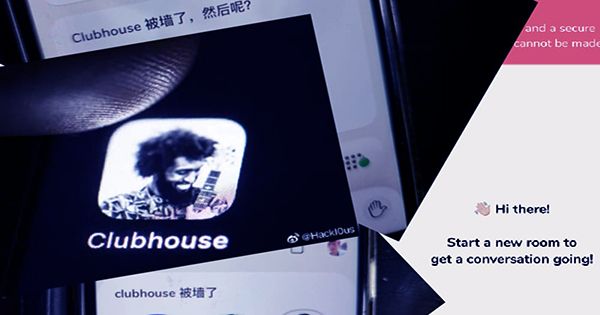At midnight on Friday, I stumbled into the clubhouse room, thanks to Feng Dahui, a well-known figure in the Chinese startup community. At midnight, the room still had about 500 listeners, many of whom were engineers, product managers and entrepreneurs from China. The discussion centered on Clubhouse, an application that allows people to join pop-up voice chats in virtual rooms. I have been asking this question myself in recent weeks. Given the current hype in Silicon Valley about audio social networks, it is not surprising that well-known, technology-savvy Chinese users are starting to shake up the platform. Demand for this specialty has grown significantly because of recent corporate scandals.
I told many users to believe that the app would not reach its full potential or even find a product-market fit in China before the ban. In fact, a handful of Chinese-language cells touch on issues that usually censored in China, from the crypto trade to Hong Kong protests.
If this is a consolation, clubhouse clones and derivatives are already in China. A Chinese entrepreneur and block who gave the nickname Herock told me he knew at least “dozens of local teams” working on something like this.
Moreover, voice-based networking, though in various forms, has been in China for many years. If the clubhouse is blocked, can any of its alternatives be successful?

Information control
A direct clubhouse clone probably will not work in China. A few factors reduce its prospects in a country of nearly one billion internet users. The main appeal of the clubhouse is the organic flow of the conversation in real time. However “how can the Chinese government spread free-flowing talks without hindrance and without control,” the founder of a Chinese audio app asked, speaking on condition of anonymity. In China, for example, video live streaming is subject to limited regulation of who can say what and who can say what.
The founder then quoted a famous online protest in 2011. Thousands of small retailers launched a cyber attack on Alibaba’s online mall over the proposed fee increase. The tool they used to coordinate with each other was YY, which started voice-based chatting software for gamers and later became known for video live streaming.
“Authorities fear the power of real-time audio communication,” the founder added.
Clubhouse elites
The impossibility of uncensored and open discussion on the Chinese Internet could explain why the market has not seen its own clubhouse. However, even if an app like Clubhouse allowed staying in China, it will not be able to reach the same large size across the country as Dwayne (Chinese version of TikTok’s ) and WeChat .
The application, like the voice version of Twitter, is “elitist,” says Marco Lai, CEO and founder of Lizzie, the NASDAQ-listed Chinese audio platform. So far, Clubhouse’s invite-only model has limited its American user base to technology, the arts, and celebrity circles. Hark observed that its image of the Chinese population mirrors the trend, with users focusing on finance, startups and product management, as well as crypto traders.
Even among these users, there are questions about leisure time. The other night, I woke up in the middle of the night with a group of ByteDance employees scattered. In fact, I was at the clubhouse in the evenings after most of the work, because that is when user activity in China appears to be at its peak. Who has so much time in China? “When I asked him if he thought the clubhouse would appeal to the Chinese people,” said Zhou Lingyu, founder of Rain Maker, a Chinese networking community for professionals.
Technical support
What I find fascinating about Clubhouse is how easily it works in China. Even when no foreign application banned in China, it often loads slowly due to the distance of the server from China.
Clubhouse does not actually create technologies that support its huge chat groups that sometimes reach thousands of participants. Instead, it uses a real-time audio SDK from Agora, two sources told me. The South China Morning Post also reported. Asked to verify the partnership, Agora chief executive Tony Zhao said via email that he could not confirm or deny any engagement between his company and the clubhouse.
















